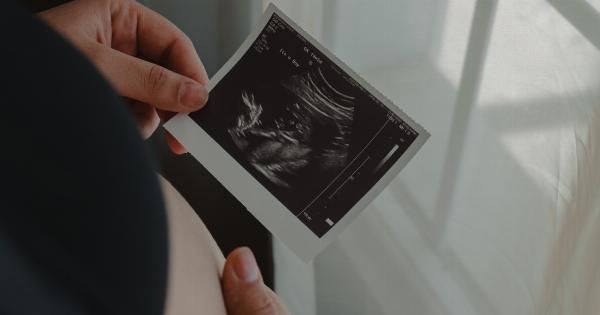As a parent, you always want the best for your baby, and their overall health is of utmost importance. One crucial aspect of your baby’s health is their hearing.
Your baby’s ability to hear is not only essential for their language and speech development but also for their overall cognitive and emotional development. As per the American Speech-Language-Hearing Association, babies should undergo hearing tests at birth and preferably before three months of age. In this article, we will look at 30 reasons why you should prioritize hearing tests for your baby.
H2: Identify Hearing Loss Early
One of the most important reasons to test your baby’s hearing is to identify hearing loss early. Early detection not only ensures prompt treatment but also improves the chances of successful intervention and a positive outcome.
H2: Impact on Speech and Language Development
Hearing plays a significant role in speech and language development. If your baby is not able to hear sounds properly, it can lead to delayed speech and language development.
H2: Communication with Family and Friends
Hearing loss can affect your baby’s ability to communicate with you, family, and friends. Early intervention can prevent communication problems, which can affect your child’s social and emotional development.
H2: Emotional and Social Development
Hearing loss can significantly impact your baby’s emotional and social development, which can affect their overall quality of life.
Early hearing tests can ensure your child receives timely treatment, which can help them develop age-appropriate social and emotional skills.
H2: Educational Development
Children with hearing loss may face difficulties in educational settings. Early intervention can help prevent potential educational problems and ensure your child has access to the necessary resources to succeed in school.
H2: Early Intervention
Early intervention is crucial for successful outcomes in children with hearing loss. Early hearing tests can identify any problems and ensure prompt intervention to minimize the impact on your child’s development.
H2: Reduced Stigma
Early identification and treatment of hearing loss can help reduce the stigma associated with hearing aids and other devices. It can also help promote inclusion and acceptance in social and educational settings.
H2: Improved Self-Esteem
Positive intervention for hearing loss can boost your child’s self-esteem and self-confidence. Early hearing tests can ensure your child receives timely intervention, which can promote positive development and a healthy self-image.
H2: Better Relationships
Good communication is the foundation of any healthy relationship. Early hearing tests can ensure your baby has access to the necessary support and resources to communicate effectively with you, family, and friends.
H2: Better Quality of Life
Early identification and intervention for hearing loss can improve your child’s overall quality of life. It can also ensure your child has access to all the resources and support necessary to succeed in life.
H2: Improved Cognitive Development
Hearing loss can affect your child’s cognitive development, making it difficult for them to learn and retain information.
Early intervention can prevent potential learning difficulties and ensure your child’s cognitive development is on track.
H2: Improved Speech Production
Children with hearing loss may have difficulty producing speech. Early intervention can help prevent speech production problems, which can affect your child’s social and educational development.
H2: Improved Auditory Processing
Children with hearing loss may also have difficulties with auditory processing. Early intervention can help prevent potential auditory processing problems, which can affect your child’s speech and language development.
H2: Identification of Other Health Conditions
Hearing tests for babies can also help identify other health conditions that could affect your child’s hearing ability. Early identification can help ensure prompt treatment for any underlying health conditions.
H2: Improved Safety
Good hearing is essential for ensuring your child’s safety. Early hearing tests can help ensure your baby can hear potential dangers, such as approaching vehicles or alarms, which can help prevent accidents.
H2: Greater Access to Hearing Technology
Early identification of hearing loss can ensure your child has access to a wide range of hearing technology devices. These devices can enhance your child’s hearing ability and ensure they have the necessary tools to succeed in life.
H2: Improved Access to Support Services
Early identification of hearing loss can also ensure your child has access to the necessary support services, including speech therapists, audiologists, and special education resources.
H2: Improved Access to Education
Children with hearing loss may need additional resources to succeed in educational settings. Early identification can ensure your child has access to the necessary accommodations and support to thrive in school.
H2: Improved Ability to Participate in Social Activities
Good hearing is essential for engaging in social activities. Early identification and intervention can ensure your child has access to the necessary support to participate in social activities, which can enhance their social and emotional development.
H2: Improved Language Skills
Hearing plays a significant role in language development. Early hearing tests can ensure your child receives timely intervention, which can improve their language skills and enhance their overall development.
H2: Reduced Need for Academic Support
Early identification and intervention of hearing loss can ensure your child receives the necessary resources to prevent academic struggles. It can also help reduce the need for academic support later in life.
H2: Improved Overall Health
Good hearing is essential for overall physical and mental health. Early identification and intervention can ensure your child’s hearing ability is taken care of, promoting overall health and wellbeing.
H2: Improved Balance
Hearing plays a crucial role in maintaining balance, which is essential for physical activities and overall safety. Early identification and intervention can ensure your child has good hearing and excellent balance.
H2: Early Intervention for Speech Delays
Hearing loss can lead to speech delays and difficulties. Early identification can ensure your child receives prompt intervention to prevent potential speech problems and promote healthy speech development.
H2: Prevent Further Hearing Loss
Early hearing tests can identify any potential problems that could lead to further hearing loss. Early intervention can help prevent further damage, improving your child’s overall hearing ability and promoting healthy development.
H2: Reduced Need for Special Education Services
Early intervention for hearing loss can help prevent the need for special education services later in life. It can also ensure your child has access to the resources necessary for academic and social success.
H2: Improved Music Appreciation
Hearing plays a significant role in music appreciation. Early identification and intervention can ensure your child has the necessary hearing ability to appreciate and enjoy music, which can promote emotional and cognitive development.
H2: Importance of Hearing Tests at Birth
Hearing tests at birth are essential for early identification of hearing loss. It can ensure prompt intervention and improve your child’s overall development. Hearing tests at birth are quick, painless, and can be conducted at the hospital.
H2: Conclusion
Prioritizing hearing tests for your baby is crucial for their overall development. Early identification and intervention can ensure your child has access to the necessary resources and support to succeed in life.
Hearing tests are quick, painless, and can make all the difference in your child’s quality of life.




























